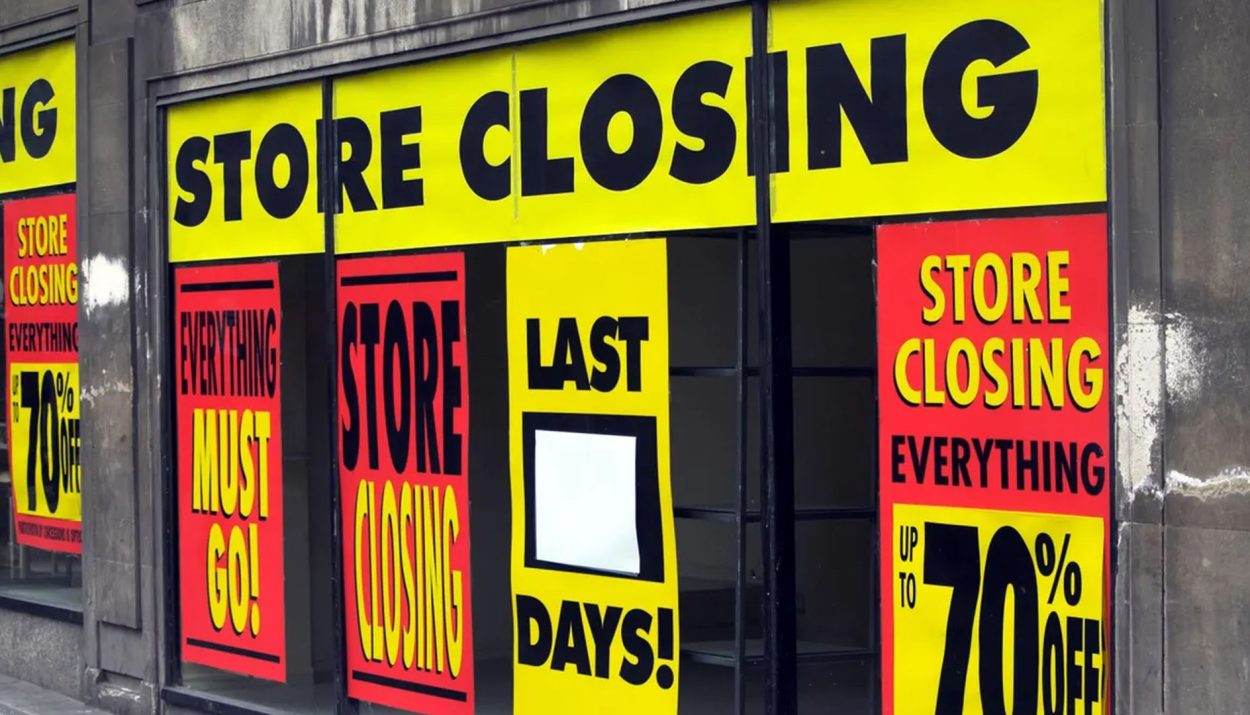On Thursday, the popular discount chain 99 Cents Only Stores announced that it will be closing all its 371 stores across the nation. The company’s interim CEO, Mike Simoncic, revealed in a statement that the company has been facing tremendous economic hardships which have “greatly hindered the company’s ability to operate.”
A Difficult Decision
Simoncic said, “Unfortunately, the last several years have presented significant and lasting challenges in the retail environment, including the unprecedented impact of the Covid-19 pandemic, shifting consumer demand, rising levels of shrink, persistent inflationary pressures and other macroeconomic headwinds.”
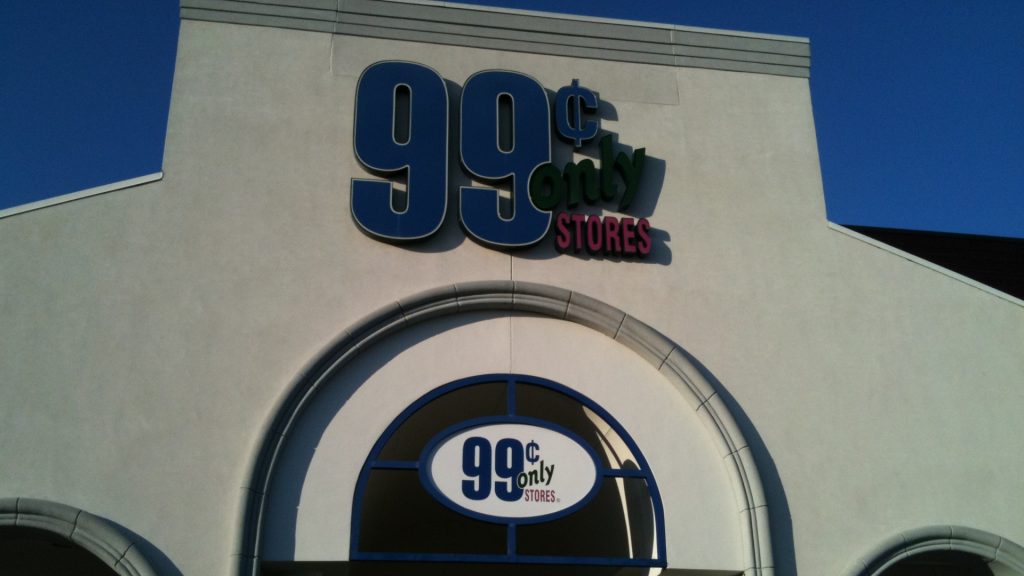
Simoncic added, “This was an extremely difficult decision and is not the outcome we expected or hoped to achieve.”
Bloomberg Had Reported About the Company’s Hardships
Last month, Bloomberg had reported about the company’s financial hardships.

The Bloomberg article said, “99 Cents Only Store LLC is considering a bankruptcy filing as the discount retailer faces a liquidity shortfall, according to people familiar with the situation.”
The Company’s 14,000 Employees Have Been Impacted
The company currently has stores in Texas, Arizona, California, and Nevada.

The Los Angeles Times reported that the company employs around 14,000 people
Hilco Global Is Helping With the Liquidation
The privately held company has stated that Hilco Real Estate is helping with the liquidation of all its merchandise.

Hilco Real Estate is also helping the company with the disposal of equipment, fixtures, and furnishings from its stores. Sales are expected to start from Friday.
Simoncic Will Be Stepping Down
The statement released by the company said, “Hilco Real Estate (HRE) is managing the sale of the Company’s real estate assets, both owned and leased, in Arizona, California, Nevada, and Texas.”
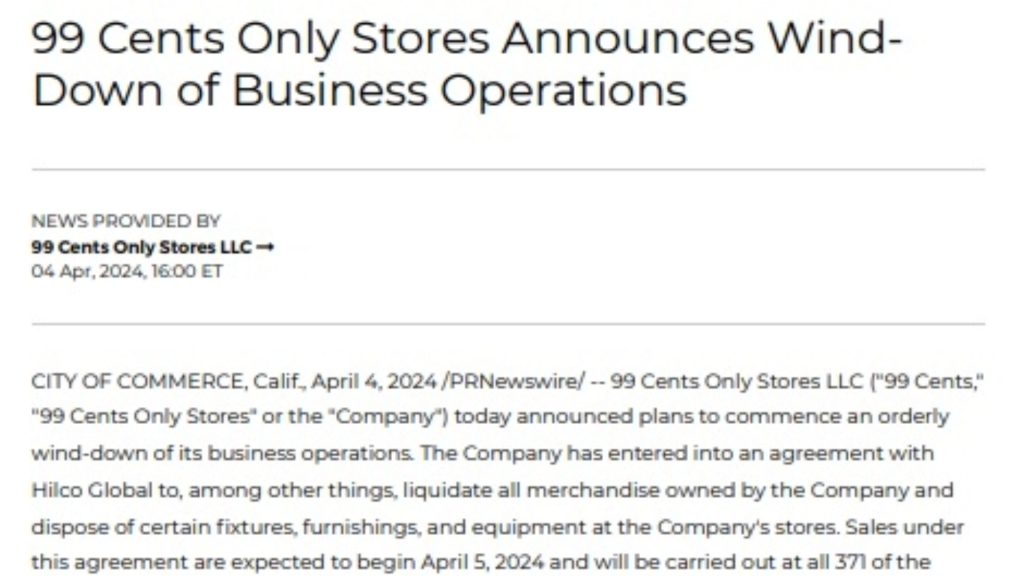
The statement added, “To help facilitate the wind-down, the Company has appointed Chris Wells, Managing Director at Alvarez & Marsal, as Chief Restructuring Officer. Mike Simoncic, Interim Chief Executive Officer of 99 Cents Only Stores and Managing Director at Alvarez & Marsal, will step down.”
The Company Did Its Best to To Figure Out How It Can Stay in Business
The statement clarified that the company has looked at every possible solution to find a way of staying in business.

The statement says, “99 Cents Only Stores, together with its financial and legal advisors, engaged in an extensive analysis of all available and credible alternatives to identify a solution that would allow the business to continue.”
“An Orderly Wind Down” Became a Necessity
According to the statement released by 99 Cents Only Stores, the company has spent months engaging in “as extensive analysis of all available and credible alternatives to identify a solution that would allow the business to continue.”

The statement said, “Following months of actively pursuing these alternatives, the company ultimately determined that an orderly wind-down was necessary and the best way to maximize the value of 99 Cents Only Stores’ assets.”
Challenging Economic Times
Inflation, higher losses, and rising wages from shrinkage have squeezed the profit margins of retailers operating in the deep-discount sector.

According to KeyBanc Capital Markets equity research analyst, Brad Thomas, 99 Cents Only Stores, with its sizeable presence in California, has been under significant wage pressure.
Difficult Times for Many Retailers
Thomas revealed, “It’s been trying times for many, many retailers.”

Thomas added, “What’s interesting is that what started out as a boon to retailers in the pandemic, with all those stimulus checks, quickly turned into a very troublesome time.”
The Company Was Founded in 1982
99 Cents Only was founded in Los Angeles by David Gold. The company pioneered the single-price retail concept. Howard Gold, one of the sons of David Gold, said on Friday, “It was an instant success.” Gold added, “People thought it was government-subsidized because they couldn’t believe the prices.”
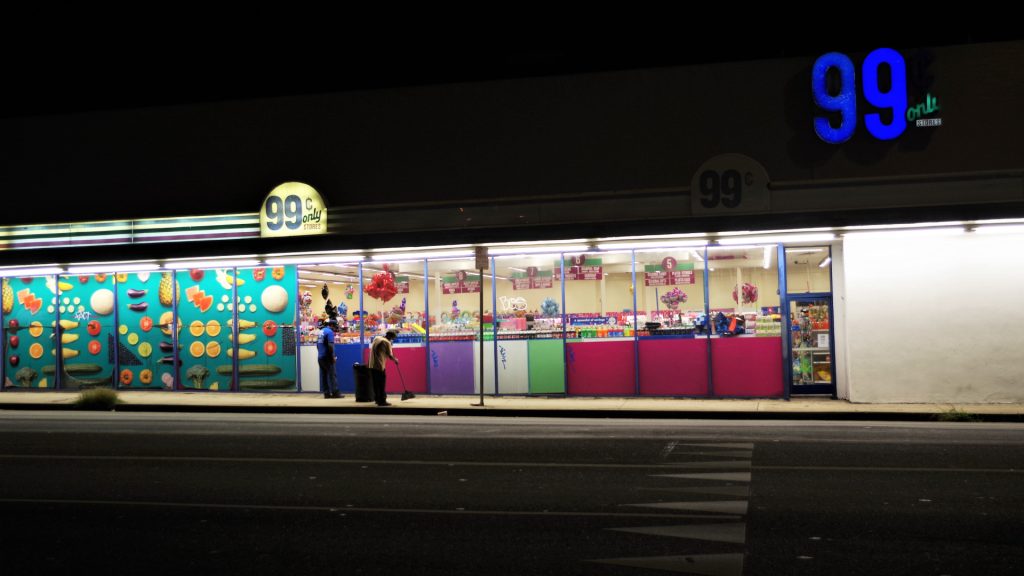
Talking about the origins of the company, the press release states, “Founded in 1982, 99 Cents Only Stores LLC currently operates nearly 371 stores located in California, Texas, Arizona and Nevada. 99 Cents Only Stores LLC offers a broad assortment of name brand and other attractively priced merchandise and compelling seasonal product offerings.”
The Pricing Eventually Became Unsustainable
For many years, 99 Cents Only stood out as one of the few real “dollar” stores, where items were priced at 99 cents or less, or were grouped together to be sold for a total of 99 cents. In 2008, the company was confronted with rapid inflation and higher minimum wage requirements alongside soaring fuel and food prices. The company was finally compelled to depart from its longstanding pricing strategy.

An NPR news article published on September 9,2008, stated, “Bargain shoppers on the West Coast have been worried that the popular 99 Cents Only retail chain would raise prices. It’s one of the few “dollar” store chains that actually sell things for a dollar still. The CEO recently said inflation and soaring costs forced him to re-evaluate his pricing strategy. Prices are going up — to 99.99 cents, plus tax.”
The Gold Family Sold The Company in 2011
Three years later, in 2011, the company revealed that it had agreed to a sale valued at approximately $1.6 billion. The valuation revealed investors’ interest in dollar stores that had gained popularity during the Great Recession.

By 2013, Howard Gold and his entire family management team had exited the company.
The Company’s Properties Will Become Vacant In Prime Locations
According to the LA Times, 99 Cents Only has many stores scattered around Los Angeles County. This includes stores in Silver Lake, Santa Monica, Mid-Wilshire, Glendale, Hollywood, and North Hollywood.
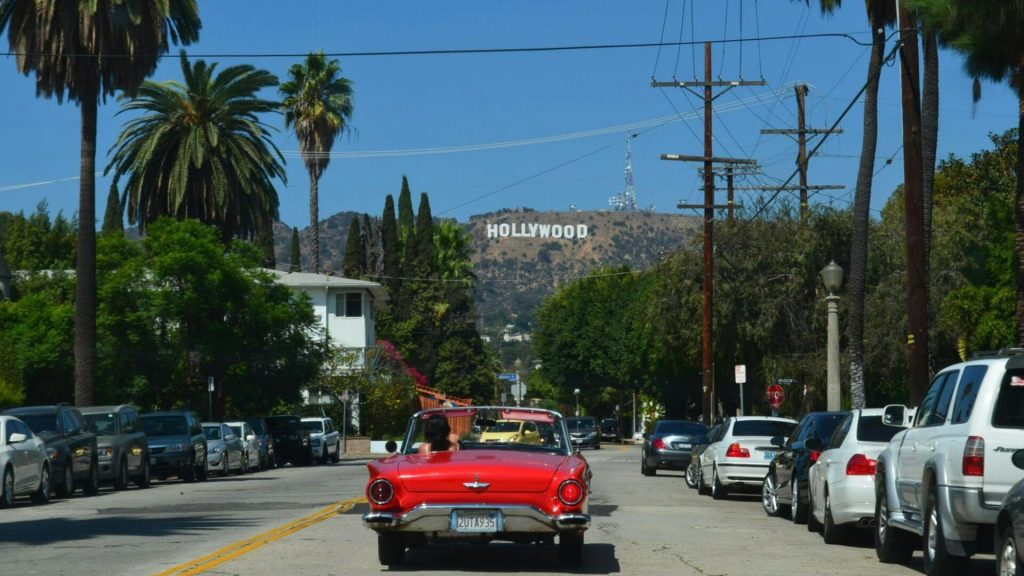
The LA Times reported that the closure of 99 Cents Only Stores will lead to many large properties becoming vacant in the county.
Gold Expressed His Sadness
Gold, now retired and residing in Studio City, commented on the decision to close the chain his father established. He said, “It’s very sad on many levels, and I’ll just leave it at that.”

Several other large-scale retailers have announced the closure of their stores in California. This includes Macy’s in Simi Valley, REI in Santa Monica, and Rite Aid across several of its locations.
Shocked Customers
Nicolas Kolesnikow, an 82-year-old retired teacher residing in Westchester, expressed his surprise upon learning that the chain was closing down.

Kolesnikow frequents a nearby 99 Cents Only Store several times a week for shopping. Kolesnikow said, “It’s almost like a corner store for me.”
Prices Had Been Rising
Kolesnikow, being a frequent shopper at his nearby 99 Cents Only shared that he often goes there to buy milk whenever he runs out of it. Longer shopping trips often involve buying household items. He also picks up produce like cilantro, cucumbers, and tomatoes before heading to a regular supermarket with a much wider selection.

Kolesnikow shared that he had noticed that the prices of many items had risen in the last few years even though there were still a lot of good deals available. He said, “I found their prices were working their way up to regular prices, and there were fewer shoppers.”
Dollar Tree Is Also Closing Stores
Less than a month ago, Dollar Tree, one of the largest dollar-store chains in the U.S., announced its plans of closing around 1,000 stores.

Nearly 600 stores are scheduled to close their doors this year. Around 370 more will be closing down in the coming years. Dollar Tree is the parent company of Family Dollar. It currently operates around 16,000 stores across the country.
Family Dollar’s $40 Fine
Two years ago, Family Dollar temporarily closed multiple stores and permanently shut down a distribution center following federal investigators discovering a rat infestation at the facility. As a result, the company was compelled to pay a $42 million fine – the largest food safety fine in history.Image 18

Rick Dreiling, the CEO of Dollar Tree, discussed the challenges of operating the company. He said, “Persistent inflation and reduced government benefits continue to pressure the lower-income consumers that comprise a sizable portion of Family Dollar’s customer base.”
Dollar General Is Growing
While 99 Cents Only and Dollar Tree have been facing challenges, Dollar General, the largest discount-chain company has significantly expanded its presence in the last few years. Back in February, the company announced the opening of its 20,000th store along with plans of opening 800 additional stores this year.
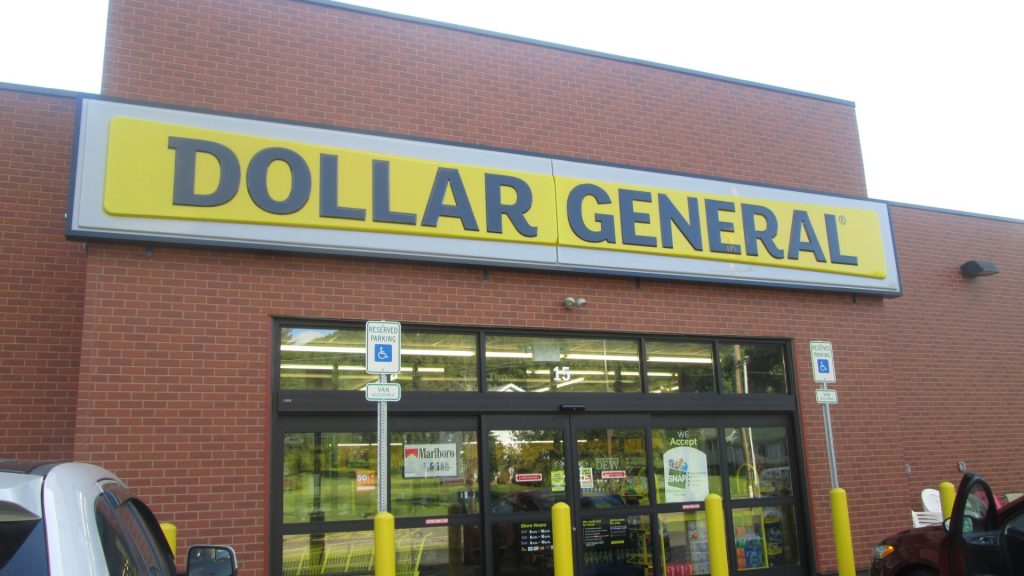
According to analysts, there are differences in strategies employed by the different dollar-store brands. Dollar Tree has targeted urban populations, whereas Dollar General has chosen to prioritize its expansion in rural areas where there are very few competitors.

